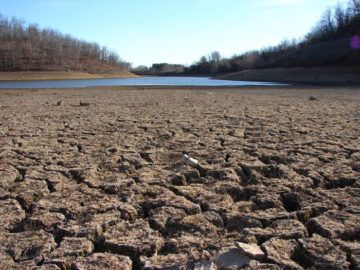 Marco D’Eramo in Sidecar:
Marco D’Eramo in Sidecar:
In Europe, the war bulletins come not just from Ukraine, but also from the climate front. The French government has cracked down on water use, banning watering lawns and washing cars in 62 of 101 departments, as more than 100 municipalities no longer have potable water. Nuclear power plants on the Rhône and Garonne have had to reduce production due to insufficient water in the rivers. In Italy, the government has declared a state of emergency in 5 of 20 regions, while Second World War bombs are discovered on the beds of its largest river, the dried-up Po. In Germany, the Rhine is so low that the barges plying its 1,000 kilometres from Austria to Holland have had to reduce their cargo from 3,000 to 900 tons so as not to run aground, and the river is expected to soon become impassable to freight traffic. In England, for the first time on record, the source of the Thames has dried up and the river is beginning to flow more than 5 miles further downstream. In Spain, restrictions on water consumption have been imposed in Catalonia, Galicia and Andalusia.
These are all warning signs. In a few centuries, the idea of water as an abundant resource and universal right may be unimaginable. It is easy to forget that even in the so-called advanced world, domestic running water – for toilets, cooking, personal hygiene, washing clothes and dishes – is a very recent and ephemeral phenomenon, dating back less than a century.
More here.
